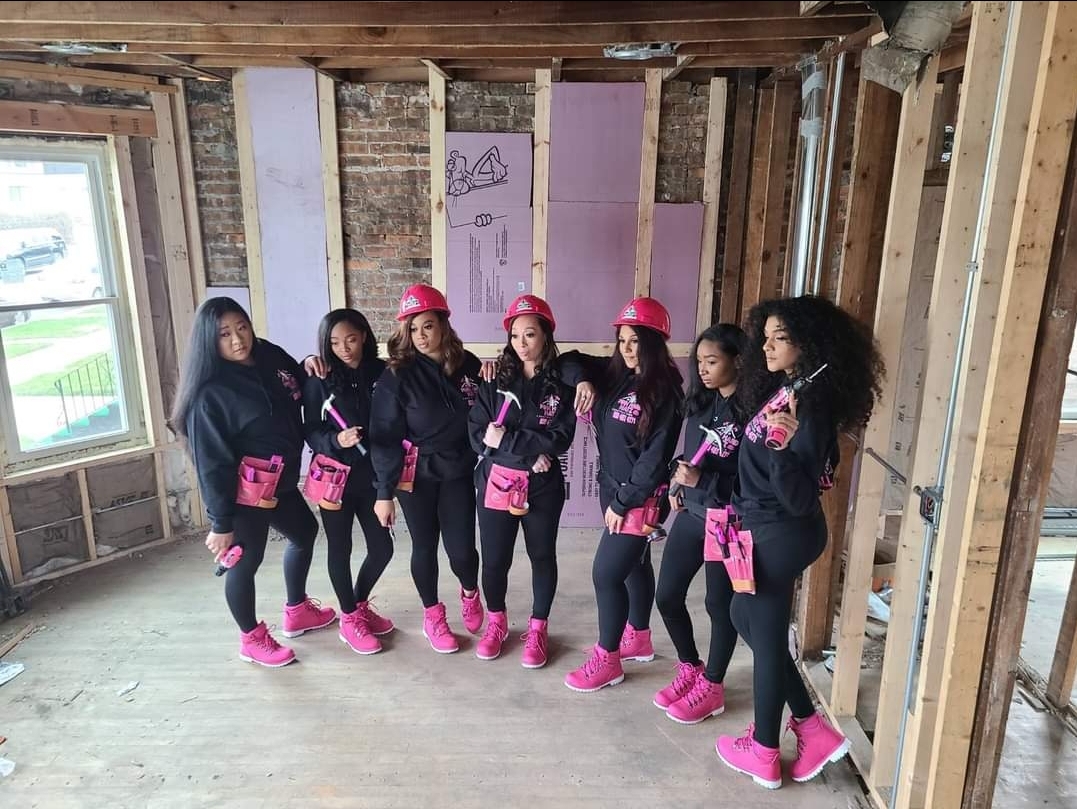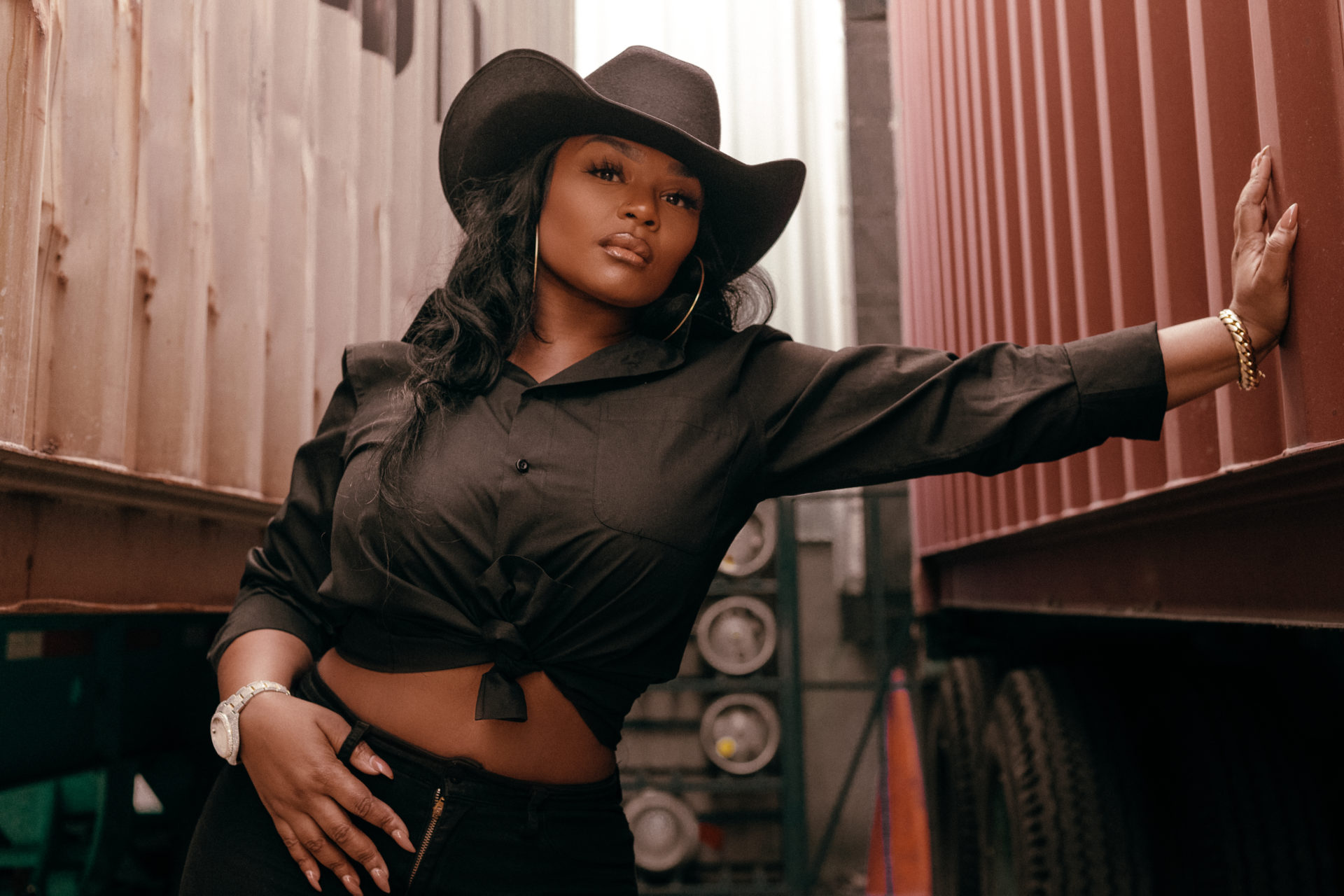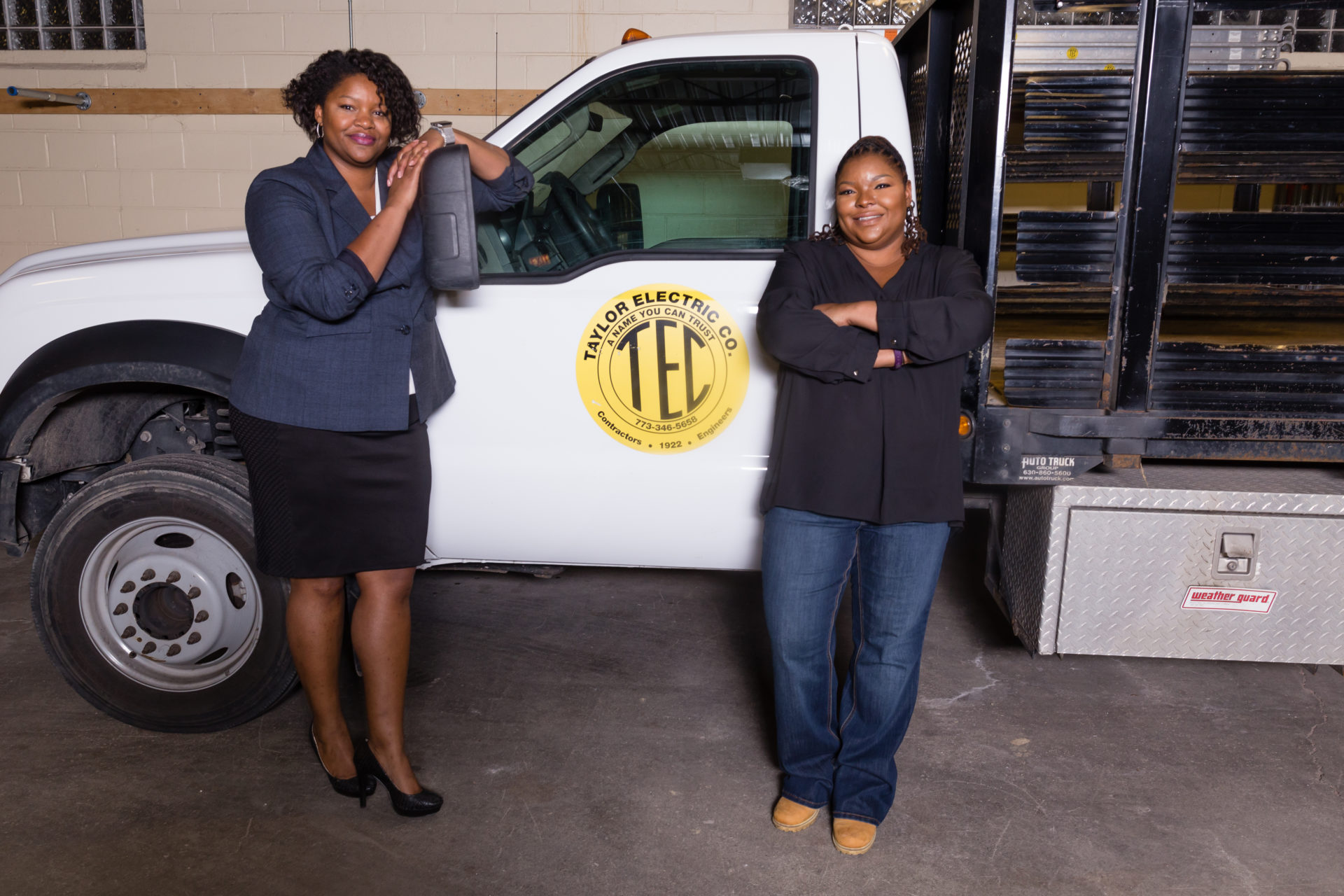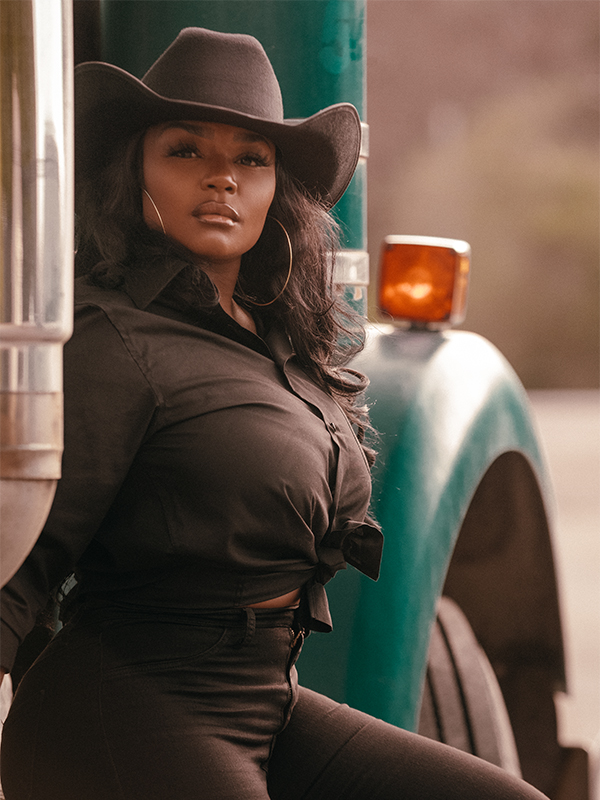Trading in her high-heels for steel toe boots, Sashe Ivy was sure of one thing when she secured her general contracting license to begin renovating and building dream homes for her clients.
“I wanted to show women that you can still be soft, sexy and do construction,” she tells Sweet July.
Outfitting her workers with signature hot pink construction boots and safety vests became the trademark for her Chicago-based company, Pink Hard Hatz Construction—LLC that she launched three years ago. It was the ideal feminine yet formidable touch the former real estate agent had in her arsenal of recruiting tactics in hopes of luring Black women into a heavily male-dominated industry.
Roughly 13% of women work in construction, a stat that has been stagnant since the 1990s, according to the Bureau of Labor Statistics. Unsurprisingly, Sweet July was unable to source any data on the percentage of Black women actively working in the field.
This staggering truth entered into Ivy’s purview when the Southside native attended a community meeting to discuss plans on revitalizing one of Chicago’s most undeveloped residential neighborhoods.

“It dawned on me that I was the only woman in the room,” says Ivy. Her realization was the impetus behind kickstarting her construction company. That would eventually evolve into more initiatives to spur representation, like partnering with local women trade groups to integrate a paid apprenticeship—with the goal of hiring women after they attended trade school for eight weeks and got hands-on experience on construction sites.
There’s an undeniable link between trade jobs (jobs that require advanced training and a particular skill set) and the fight for pay equity, according to a report by The World Bank. “Trade can expand women’s role in the economy and decrease disparities with men by giving women more and better employment opportunities,” Mari Pangestu, The World Bank managing director, said in the report. But the historically sexist nature of these roles has held women back from being key decision makers in this multibillion-dollar industry.
With an acute shortage of skilled workers in the trades and the passing of a bipartisan $1.2 trillion infrastructure law, the largest investment in the country’s infrastructure and economy, now couldn’t be a better time for Black women to get a hefty salary bump if they were to enter the field.
“Just think of how much money we are missing out on,” says Ivy. “When you talk about a payday, that’s a payday.”
Securing the bag
Casey Cooper knows what it takes to build an empire in the trades. Starting out as a 25-year-old in the trucking business, her motto of “failing forward” is what made the Virginia native hustle harder when it came to her business, The Compass Circle.

Seeing the industry as a lucrative bet, Cooper never thought once about throwing in the towel, even though it took nearly eight years for her business to become profitable. Week-long road trips with her two young kids hauling loads of products from Virginia to Florida would eventually pay off and become the turning point needed when a contractor she was working for informed her about bidding to win government contracts.
“My biggest breakthrough came when my company was on its side,” says Cooper, referring to a meeting she was preparing for to seal the deal for her first government contract. “Your presentation has to surpass your circumstances.”
Cooper now manages $9 million in total contracts with the fleet of 73 trucks that she has on her payroll as contractors. Her goal is to bring minority-owned and operated businesses into the fold to help scale their companies by obtaining contracting projects.
“Once you get to a certain level, there’s no going back,” says Cooper.
Debunking the “Dirty work” stigma
Quality work is something Kendra and Karen Michele Dinkins’ great-grandfather prided himself on as an independent electrician at a time when rampant discrimination in the industry kept African Americans locked out of jobs.
“He would sometimes sleep at job sites so that his work wouldn’t be sabotaged,” says Kendra Dinkins, president and CEO of Taylor Electric Company.
Celebrating the centennial of the company this year, Kendra and Karen are now the leading ladies of the business their great-grandfather worked so hard to build, along with 80 employees. A portfolio of residential and multimillion-dollar hospitality and facility maintenance projects, including the White Sox Stadium, has the company on track to surpass $20 million in revenue this year.

And still, questions about competence still arise. “Anytime we make the simplest of mistakes, it becomes a larger conversation about if women or Black-owned businesses can really cut it,” says Kendra.
Having serendipitously transitioned to working in the trades, Kendra says the most rewarding part is carrying on her family’s legacy and advocating for skilled labor as honorable work. With trades having been stigmatized as blue-collar and dirty jobs, that prejudice has kept younger generations from getting the hands-on vocational skills that could ultimately yield lucrative rewards.
“There’s nothing wrong with going to college, but there’s also nothing wrong with building something,” says Kendra. “Union tradesmen is the ultimate equalizer in pay and it doesn’t matter if you’re a man or woman.”







